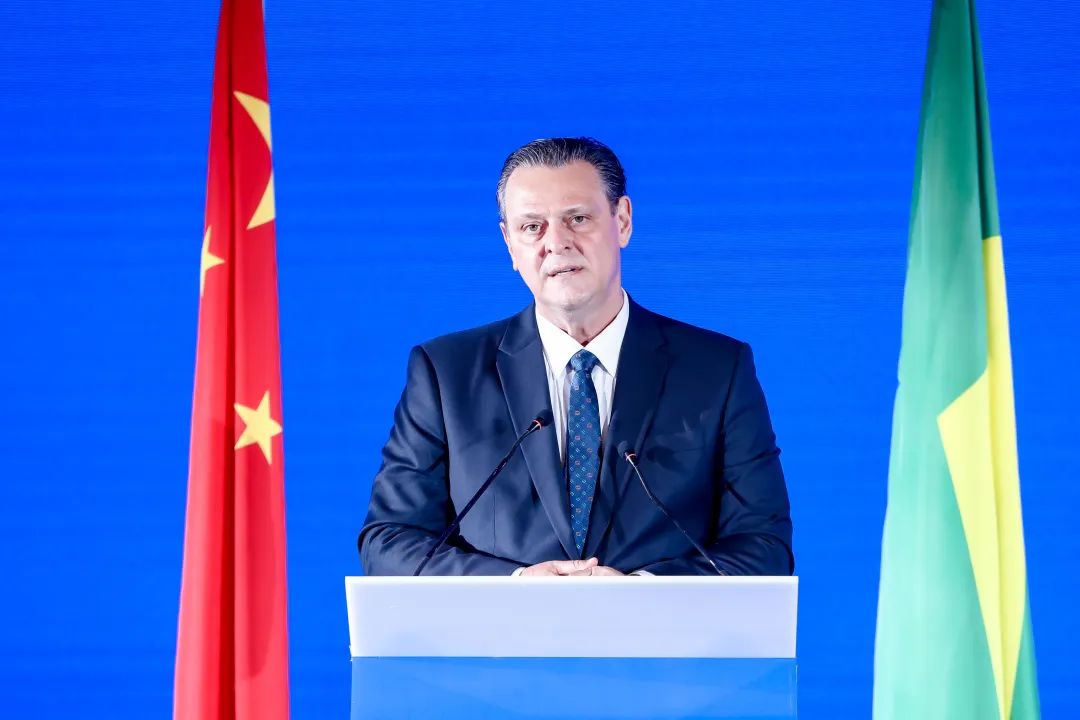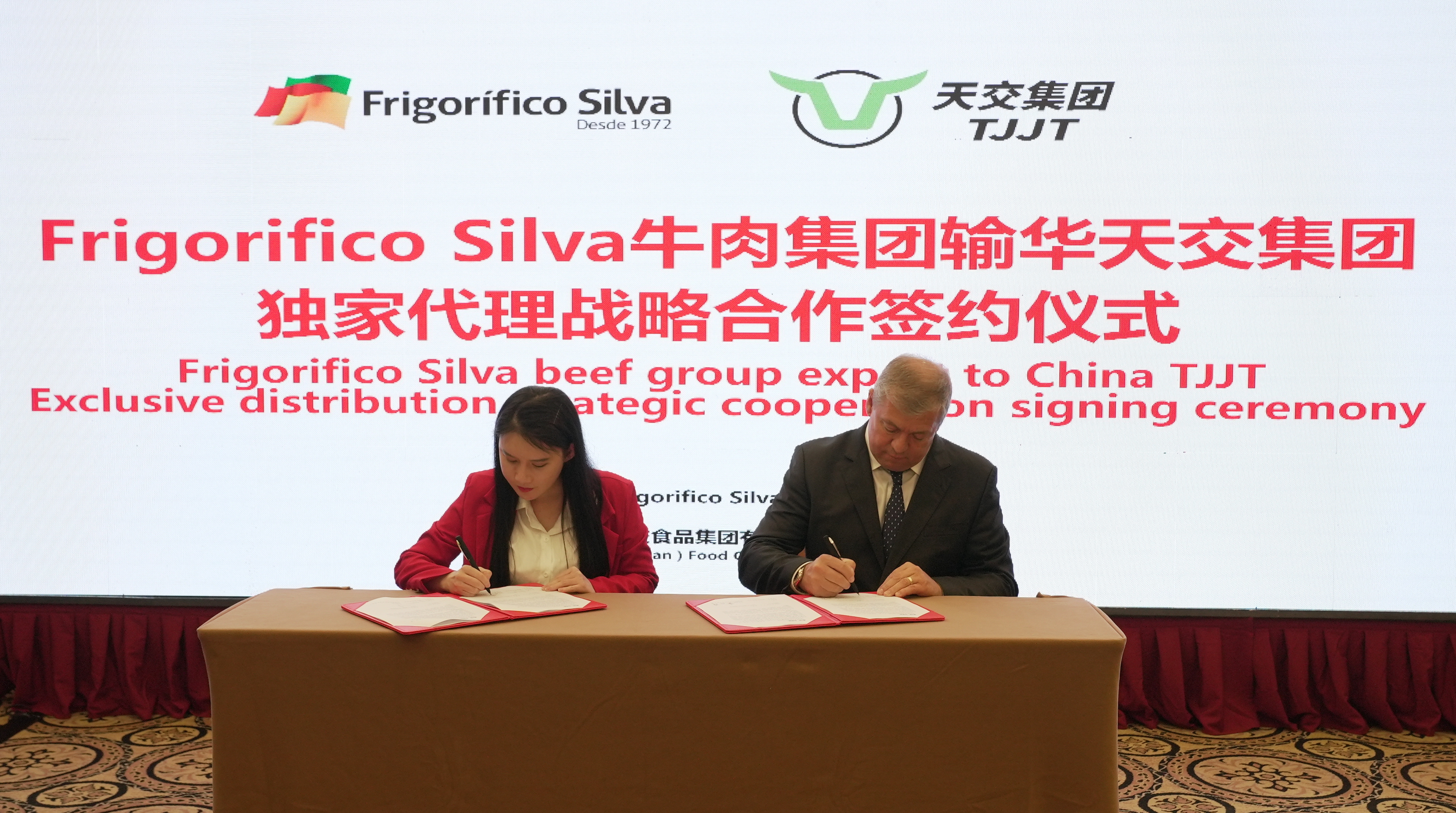The Brazil-China Business Seminar, attended by high-level government officials and entrepreneurs from both countries, was held in Beijing on March 29. During the event, the two sides inked agreements to strengthen cooperation, particularly in the areas of agriculture, financial transactions, trade and green development.

Carlos Favaro, Brazilian minister of agriculture and livestock, delivers a speech at the Brazil-China Business Seminar in Beijing, March 29, 2023. /Brazilian Embassy in China
Carlos Favaro, Brazilian minister of agriculture and livestock, delivers a speech at the Brazil-China Business Seminar in Beijing, March 29, 2023. /Brazilian Embassy in China
"Four new beef manufacturers in Brazil have now been approved to export products to China," Carlos Favaro, Brazilian minister of agriculture and livestock, said at the seminar.
On March 23, China's General Administration of Customs (GAC) allowed Brazil to resume exporting deboned beef under 30 months of age to the country, following a risk assessment confirming Brazil's mad cow disease prevention and control system met China's quarantine and health requirements.
Guo Tingting, Chinese vice minister of commerce, noted that China has been Brazil's largest trading partner for 14 consecutive years and has invested about $60 billion in Brazil. Data from the Chinese Ministry of Commerce shows that Brazil is the first Latin American country to hit a trading volume of over $100 billion with China.

Over 500 Chinese and Brazilian entrepreneurs attend the Brazil-China Business Seminar in Beijing, March 29, 2023. /Brazilian Embassy in China
Over 500 Chinese and Brazilian entrepreneurs attend the Brazil-China Business Seminar in Beijing, March 29, 2023. /Brazilian Embassy in China
Agricultural products like soybeans and beef have been a major part of China-Brazil trade. According to the Brazilian embassy to China, over 20 percent of Chinese imported agricultural products last year were from Brazil.
In 2022, China imported a total of 2.688 million tonnes of beef, of which 1.105 million tonnes were from Brazil, accounting for 41 percent of the total and making it China's largest foreign beef source, according to GAC.

Marcos Galvão, Brazilian ambassador to China, gives a speech at the event, March 29, 2023. /Brazilian Embassy in China
Marcos Galvão, Brazilian ambassador to China, gives a speech at the event, March 29, 2023. /Brazilian Embassy in China
China's booming demand for high-quality imports through free trade areas, especially the much more preferential tax policies adopted at Hainan free trade port, has attracted more global investors.

Beef companies from Brazil's southernmost agricultural state of Rio Grande do Sul ink strategic agreements with Chinese company Tianjiao Group to expand cooperation at Hainan free trade port, March 29, 2023. /CGTN
Beef companies from Brazil's southernmost agricultural state of Rio Grande do Sul ink strategic agreements with Chinese company Tianjiao Group to expand cooperation at Hainan free trade port, March 29, 2023. /CGTN
In a parallel seminar on China-Brazil Livestock and Food Supply Chain, beef companies and the trade promotion department of Brazil's southernmost agricultural state of Rio Grande do Sul inked strategic agreements with Chinese company Tianjiao Group, aiming to utilize the preferential policies of Hainan free trade port to process Brazilian beef and meet the demand of the Chinese market.